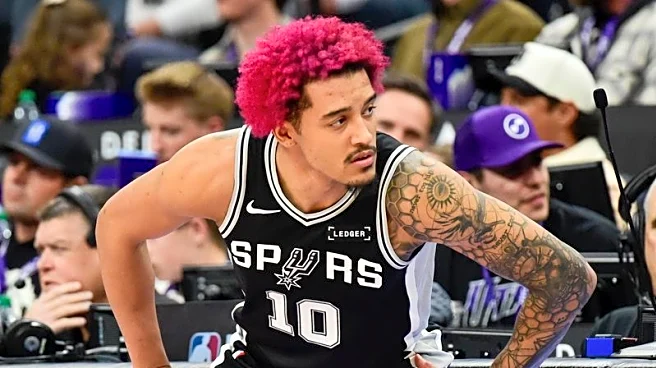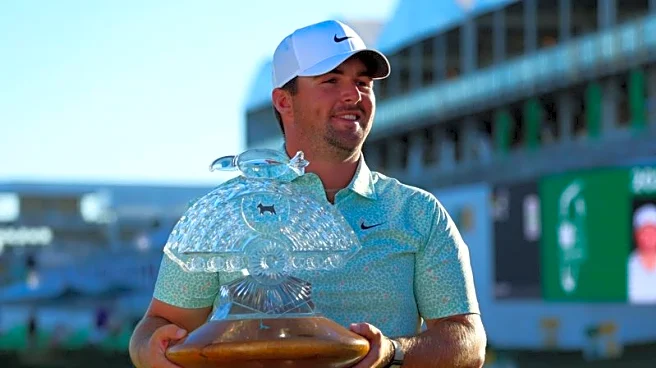What's Happening?
Oldest siblings often face unique challenges that manifest in therapy sessions, according to insights from licensed therapists. These individuals are frequently described as 'fiercely independent,' 'driven,' and 'responsible,' traits that stem from their early roles as caretakers for younger siblings. The absence of other children during their formative years means their role models are primarily adults, which influences their development. Common issues discussed in therapy include struggles with perfectionism, feelings of imposter syndrome, and experiences of 'parentification,' where they assume adult responsibilities at a young age. These challenges are compounded by the pressure of high expectations from parents, leading to a Type A personality and self-critical tendencies.
Why It's Important?
Understanding the psychological impact on oldest siblings is crucial for mental health professionals and families alike. These individuals often carry the burden of high expectations and responsibilities, which can lead to mental health issues such as anxiety and depression. Recognizing these patterns can help in providing targeted therapeutic interventions. Moreover, this awareness can foster better family dynamics by addressing the root causes of sibling rivalry and resentment. For society, acknowledging these dynamics can lead to more supportive environments in both personal and professional settings, ultimately contributing to healthier relationships and improved mental well-being.
What's Next?
Therapists suggest that oldest siblings can benefit from therapy to address perfectionism and imposter syndrome. By connecting their behaviors to childhood experiences, they can work towards dismantling harmful belief systems. Family therapy is also recommended for those from families with broken bonds, as it can improve relationships with loved ones. As awareness of these issues grows, it is likely that more resources and support systems will become available to assist oldest siblings in navigating their unique challenges.
Beyond the Headlines
The cultural expectations placed on oldest siblings, particularly in BIPOC communities, highlight the need for culturally sensitive therapeutic approaches. These individuals often feel obligated to fulfill roles that are traditionally expected, which can perpetuate cycles of stress and anxiety. Addressing these cultural dimensions in therapy can lead to more effective treatment outcomes and empower oldest siblings to redefine their roles within their families.










